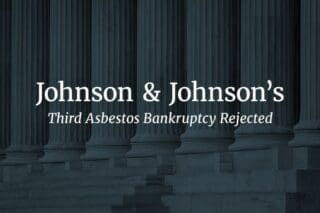A man from Rochester, New York, was sentenced to two years of probation and 150 community services hours and fined $15k for exposing employees to asbestos in violation of the Clean Air Act.
Thirty-two-year-old Anastasios Taso Kolokouris’ sentence was delivered by Chief U.S. District Judge Frank P. Geraci. Kolokouris must also pay restitution to the employees who were exposed to the harmful substance while working at his warehouse at 920 Exchange St.
An inspector from the Asbestos Control Bureau of the New York State Department of Labor received a complaint and visited the warehouse in December 2011. He discovered large amounts of asbestos-containing material in and around a dumpster on-site. The individuals using the dumpster for work were not using proper asbestos removal equipment to protect themselves.
In fact, Rochester’s manufacturing and architectural preservation activities make asbestos exposure an ongoing concern in the city. Such venerable corporations as Eastman Kodak Company, Genesee Brewing Company, and Bausch & Lomb originated in Rochester and still have manufacturing and research facilities there.
In Rochester’s early years, the city gained a reputation for wheat milling, becoming the largest flour producer in the nation. By mid-century, commercial nurseries supplanted the flour mills, and the “Flour City” became the “Flower City.”
After the Civil War, Rochester emerged as a center for optical and imaging technologies. In 1861, two German immigrants formed Bausch & Lomb, becoming well known for their optical products, including specialty lenses, microscopes, eyeglasses, and more recently, contact lenses and medical implants.
George Eastman founded the Eastman Kodak Company in 1892 to produce cameras and photographic film. Today the company has expanded to digital imaging, printers, and motion picture products.
Although there has been some reduction in manufacturing, Rochester still has an active industrial base, contributing to the asbestos problem. Other prominent manufacturers still active in Rochester include clothier Hickey Freeman and Rochester Midland Corporation.
In this case, federal and state agents used a search warrant to legally enter Kolokouris’ warehouse premises and find the workers, as young as 16 years old, not wearing the required suits and masks. They also did not have any certification nor receive any training that would allow them to legally remove asbestos properly.
Apparently Kolokouris was paying the workers to remove the asbestos from the dumpster because the dumpster company would not agree to empty it, knowing it was full of asbestos.





